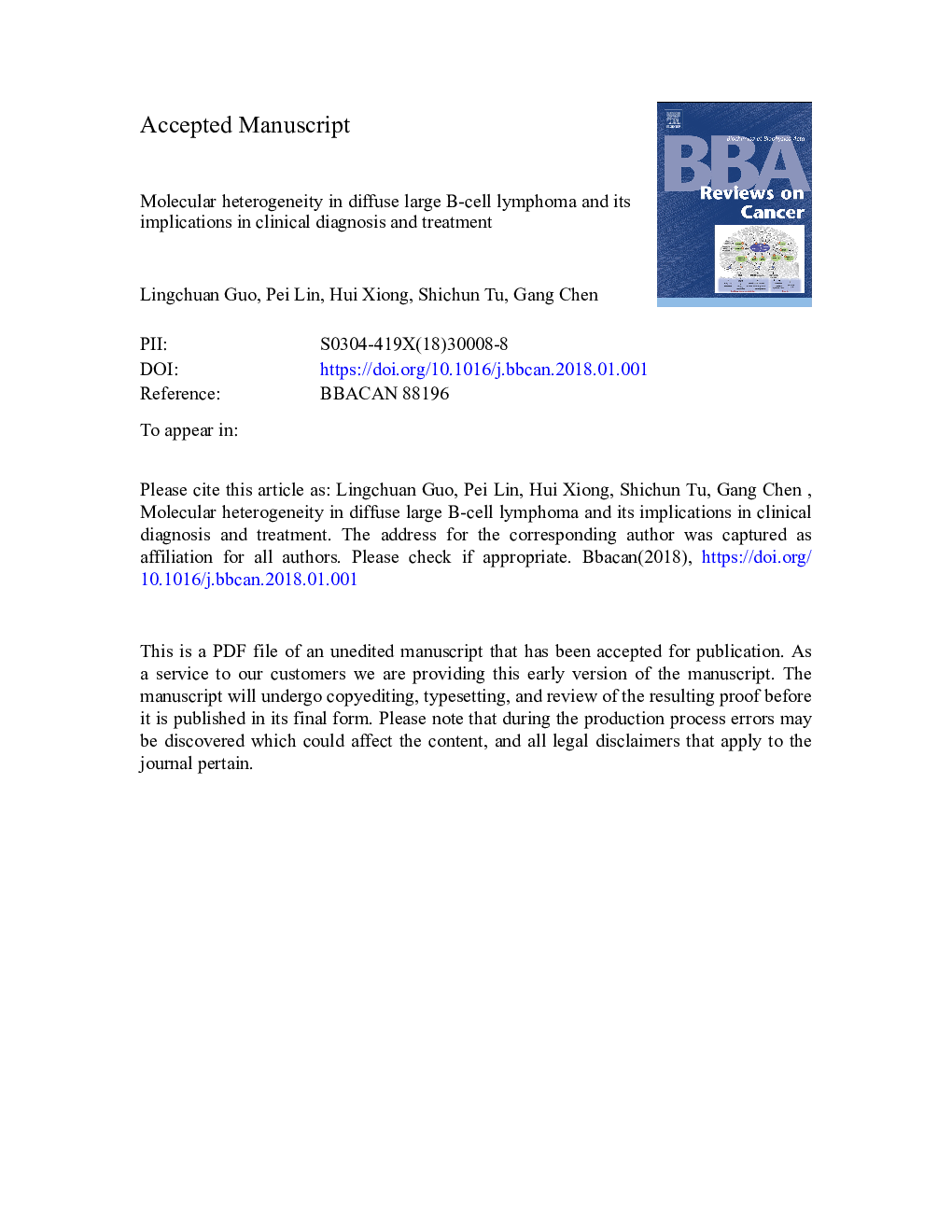| Article ID | Journal | Published Year | Pages | File Type |
|---|---|---|---|---|
| 8429294 | Biochimica et Biophysica Acta (BBA) - Reviews on Cancer | 2018 | 41 Pages |
Abstract
Over half of patients with diffuse large B-cell lymphoma (DLBCL) can be cured by standard R-CHOP treatment (rituximab, cyclophosphamide, doxorubicin, vincristine, and prednisone). However, the remaining patients are refractory and ultimately succumb to progressive or relapsed disease. During the past decade, there has been significant progress in the understanding of molecular mechanisms in DLBCL, largely owing to collaborative efforts in large-scale gene expression profiling and deep sequencing, which have identified genetic alterations critical in lymphomagenesis through activation of key signaling transduction pathways in DLBCL. These discoveries have not only led to the development of targeted therapies, including several currently in clinical trials, but also laid a solid foundation for the future identification of more effective therapies for patients not curable by R-CHOP. This review summarizes the recent advances in our understanding of the molecular characterization and pathogenesis of DLBCL and new treatment directions.
Keywords
ABCGCBDHLGEPCoOTTPPrimary mediastinal B-cell lymphomaR-CHOPDLBCLWESNHLCAM-DREFsWGSNGSPMBLOSRThlBCRcell adhesion-mediated drug resistanceBtkPFsprogression-free survivalEvent-free survivaloverall survivalNext-generation sequencingWhole-exome sequencingBruton's tyrosine kinaseTargeted therapiesTime to progressioncell-of-originBurkitt lymphomaDouble hit lymphomaDiffuse large B-cell lymphomaNon-Hodgkin lymphomagene expression profilingmolecular heterogeneitySingle-nucleotide polymorphismSNPB cell receptor
Related Topics
Life Sciences
Biochemistry, Genetics and Molecular Biology
Cancer Research
Authors
Lingchuan Guo, Pei Lin, Hui Xiong, Shichun Tu, Gang Chen,
